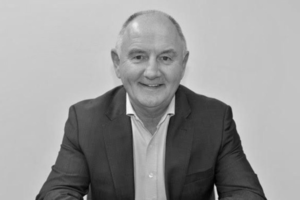Advisers don't need a hospital passBY CHRISTOPHER PAGE | TUESDAY, 14 SEP 2010 4:09PMTwo decades ago Australia's Medicare planners had the brilliant idea of limiting the number of Medicare registrations for new doctors as a way to hold down doctor payments and ... Upgrade your subscription to access this article
Join the growing community of financial advisers
with unlimited access to our latest news, research and analysis of the industry.
Become a premium subscriber today. |
Latest News
Findex partners with brokerage firm to deliver 'best-in-class' service
Findex is entering a joint venture with Ortus Financial to bolster its expertise and breadth of its service.
ASIC funding levy to charge advisers $46.2m
The financial advice sector can expect to contribute $46.2 million to ASIC's industry funding levy for the 2025 financial year, new estimates show.
ASIC releases new relief for reportable situations regime
ASIC has provided AFSLs new reliefs to help them manage the reportable situations regime, which includes extending the length of investigations reportable from 30 days to 60 days.
TA Associates invests in Viridian Financial Group
TA Associates announced it will make an undisclosed investment in Viridian Financial Group to help the latter accelerate its next phase of growth.
Further Reading
Cover Story

Moving mountains
MAGDELINE JACOVIDES
FOUNDER & FINANCIAL PLANNER
MAZI WEALTH
FOUNDER & FINANCIAL PLANNER
MAZI WEALTH
On top of running a successful practice, Mazi Wealth founder Deline Jacovides is a fierce advocate for closing the superannuation gender gap and has built a highly popular social media presence that takes financial literacy to the next level. She tells Karren Vergara where her passion comes from and how she integrates it all with family life.
























6 years full time training plus another 4 years in-service training to become 'just a GP', hardly makes it comparable to 4 weeks of workshop DipFS training to become a financial planner. I think your reasoning here is deeply flawed.
Fully agree, Chris. Perhaps we could start, firstly, by communicating to our well-meaning politicians that in considering and implementing reform, they do so in a non-negative manner. Doubtlessly, the public impression - created by the politicians and their 'commitee cohorts', then excacerbated by the media, is that their purpose is to reform what the public seems encouraged to believe must be a corrupt, incompetent, selfish and overpaid bunch of financial advisers. Secondly, the questionable ethics of the industry-fund advertisers (ie 'don't pay commissions to financial advisers') needs to undergo some vigorous reform. Again, the underlying message (of the ads) is that financial advisers have questionable value. If we don't reverse this 'negative imaging', who will be the big losers? Of course, the people whom the pollies and the media purport to protect.
We have to be continuously on watch for the unproven ideas of the idiologically driven before they get a chance to put them into practice.
The article does remind us of the shortage of professionally qualified planners. But commentary shouldn't attempt to compare planners with medical practitioners as put by Anonymous_10.09 am. It's time ASIC took the commercial route with its compliance regulations and in contrast, revisted the commercial route that it took with RG146. Current planner training is indeed "deeply flawed". By the way, the article on Mr Markus unveiled a very straightforward action. Further, how could he, with no tax training, act for a client at the AAT. Please don't suggest that the Dip FP provides competence in tax.
@anonymous. I spent 5 years part-time Uni, 2 years CA Program and 18 months SIA to become comfortable to call myself a financial adviser. In my opinion 4 weeks of training does not make you a planner, it makes you a salesman. The point of the article is not to belittle GPs but to highlight that it takes time to train planners properly to fill the void. The problem I see is that this void will be filled by underqualified "advisers" who struggle with anything more complicated than selling a super fund.
I think Anonymous is slightly disillusioned. I am about to appoint a Planner to my practice who came from a Professional background but who has been studying in the industry for over 2 years to reach a level of competence we are both sufficiently happy with to allow her to provide advice to clients under a "Mentoring" arrangement. Medical Interns are permitted to see patients under suitable similar supervision processes after 12 months. Be that as it may, the administrative and regulatory structures governing each discipline can significantly affect the cost, availability and ultimately the quality of advice provided to clients in the future. For this reason I concur with Chris Page's reasoning.
Thinking over the last couple of years these thoughts spring to mind: -Socialist Agenda -Centralisation -Smear campaign -A biased media growing fat off Industry Fund members -A regulator asleep at the wheel, Fincorp, ACR et al. (remember Estate, Pyramid ASL, Cambridge etc. etc. no lessons learned?) Where were the stories on the MTAA unlisted asset fiasco and the Core Data IFFP Shadow shop, which found IFFPs inferior to IFAs and even Bank advisers? Now look who's been appointed master of our destiny. A card carrying socialist ex union lawyer and ISN affiliate. I don't know about you but I'm thinking of retraining for a job where I get to sleep at night. The great pity is I will be taking 22 years personal financial planning experience with me.
In another life about 40 years ago, I was asked to advise on the wisdom of the Commonwealth Public Service ceasing subsidisation of Engineering Courses and allow staff up to 5 hours time off per week for course attendence. I surveyed the students at RMIT and Melb Uni and Swinburne. Most were CPS staff. I recommended strongly that the support be maintained. Management decided to withdraw "We will just hire them off the street" despite my protestations that they would not be there. We are just overcoming the shortage of engineers. No lesson learned. We need to be annoying lobbyists. As far as the Industry Funds are concerned, I believ they are grossly misleading. While there are no commissions paid to advisers, what is paid to the person in Tassie who owns the rights to the concept?
KeithL wrote: "Medical Interns are permitted to see patients under suitable similar supervision processes after 12 months." You can't seriously compare an intern (by the way, interns have GRADUATED from medicine) with your staff member. You illustrate my first comment perfectly.
Completely agreed slashing prices will do nothing about accountability. Particularly when taking into consideration that some of it is aimed at delivering low cost and simple advice to people who previously could not afford access to such services. But the problem to avoid here is to end up with a scenario where we just have an increase in the number of under-qualified planners. Not addressing accounability and increasing the accessibility of financial advice to people will do nothing about increasing the quality of advice given. High costs may solve the problem of under supply but without accountability it will only be on the basis of chasing dollars. So keep the costs and increase the accountability it'll solve the under supply and the quality.